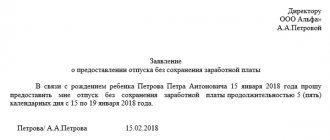Who the children will stay with after the divorce is decided by the court. According to the Family Code, both parents have equal rights to the child. However, the judge most often sides with the mother and leaves the minor with her. If a father wants to keep his son or daughter, he will have to prove that the child will be better off with him. The father must provide significant evidence to support his words. It is very difficult to win a case on your own, so we recommend that you seek help from a specialist.
[banner link=”https://rtiger.com/ru/yuristy/uristy-po-opredeleniu-mesta-zhitelstva-detey/”]
Is there a right
First, let's try to understand whether the father has the right to take the child from the mother. How feasible is this task?
In Russia, according to the law, parents are equal. They are obliged to equally care for and raise children. The place of residence of minors during a divorce, if there is no peace agreement between the parents, is determined by the court. This rule is prescribed in the Family Code of the Russian Federation, in Article 24.
Accordingly, the father may be the parent with whom the child will be left. Just like a mother has the right to take away a minor. The chances of success depend on many factors.
Communication between a parent and a child living separately
Article 66 of the RF IC says that a parent living separately has the right to participate in the upbringing and communication with children. A ban on communication can be implemented only if the party may cause physical and psychological harm to health. 65 of the RF IC emphasizes that the interests of the child are placed above parental rights and the main task of parents is to fully ensure the interests and good living conditions of their children. This means that in fact the father cannot take the child away from the mother, but has all the rights to communicate with the child if this communication does not cause any harm.
Main factors when resolving the issue
What exactly are we talking about? If you are wondering how a father can take a child from his mother, he will have to try hard. After all, the judicial authorities will primarily protect the interests of the minor. It follows that if living with dad will cause more harm to the baby than with mom, you can forget about bringing the idea to life.
Among the factors that are taken into account by the court are:
- age of the minor;
- interests of children;
- Juvenile attachment;
- personal qualities of both parents;
- parents' education and upbringing;
- material and living conditions of the parties.
In addition, judicial authorities are required to ask the child’s opinion regarding who he wants to live with. To do this, the minor must be 10 years old.
When can you leave your child with dad?
How can a father take a child from his mother? In Russia, doing this is very problematic. There are a number of reasons why you can make your goal a reality. There aren't very many of them. In addition, the existence of one or another reason for leaving the child with the father must be proven. We need irrefutable evidence. Without them, you can forget about implementing the task.
Thus, if a father wants to take a child from his mother, he must prove the presence of one or more factors:
- the mother of the minor is an alcoholic or drug addict;
- Mom has a mental illness;
- the mother is not interested in the child and his life;
- a minor often stays with a nanny or grandmother;
- The baby himself wants to live with his dad.
In addition, the mother's wild lifestyle may become the basis for the child to stay with the father. The only problem is proof of mom's dishonesty.
Briefly about divorce and children
Divorce is a procedure for terminating an officially registered marriage relationship. Persons who are not legally married cannot initiate divorce proceedings, since their relationship, from the point of view of the law, is recognized as fictitious.
The legal provisions of the Russian Federation allow divorce through the civil registry office and the court. Spouses can take advantage of the first opportunity if they have reached an individual agreement on the division of property, they do not have common minor children, and there are no other disputes.
A petition for divorce must be sent to the court if the spouses have disagreements regarding the division of property and they cannot reach a consensus on their own. The presence of minor children is also a reason why the issue should be resolved through the courts. In such a situation, any agreement between the spouses regarding the residence of the children does not play a role.
From the age of ten, a child has the right to express his own opinion regarding his desire to live with one of his parents. If the child is between 10 and 14 years old, his opinion is taken into account (his legal capacity must be confirmed). After 14 years, from a legal point of view, the child reaches the age of consent. In this case, if he does not agree to live with one of the parents, his opinion must be taken into account without fail. Since the level of development of all children is different, the court pays attention to the child’s signs of legal capacity - the disposition to make his own adequate decisions.
Issues related to the termination of a marriage relationship, in the presence of children, can be considered in the magistrate or district (city) court. The choice of authority depends on the circumstances of a particular situation. In court proceedings, the final decision is given to the court or to the spouses. If they cannot independently agree and approve the terms of the agreement, the judge will make a verdict.
Deprivation of parental rights
How can a father take a child from his mother? In practice, most often in Russia this happens when the second parent is deprived of parental rights. Accordingly, in such circumstances, the minor actually only has a father (or mother). Children cannot live with a “stranger” person.
Termination of parental rights is a last resort. It entails a number of consequences. In addition, depriving a parent of his rights is not as easy as it seems. We will have to prove the danger of the behavior (in our case, the mother) for the life and health of the minor.
Among the grounds for deprivation of parental rights are:
- evasion of responsibilities for the upbringing, protection and maintenance of children;
- refusal to pick up a child from a medical or educational institution;
- abuse of parental responsibilities;
- cruel treatment;
- the presence of chronic drug addiction or alcoholism;
- committing a crime against a child or their father.
In fact, everything is much more difficult than it seems. It is impossible to deprive the rights of a normal mother who cares for her child. Only a riotous lifestyle and the presence of addictions can become grounds for depriving a parent of his rights.
Restriction of rights
Do you want the father to take the child from the mother? As already mentioned, deprivation of parental rights is an extremely serious step. It is recommended to avoid it. You can use another technique. We are talking about restrictions on the rights of a parent. This step is used in practice quite often in relation to both mothers and fathers.
Similar situations occur if:
- Living with a child's mother is dangerous for the health of a minor for reasons beyond her control. For example, due to a mental disorder or due to chronic illnesses.
- There is not enough evidence to deprive parental rights, but at the same time, the child’s presence with his mother is dangerous for his life and health.
In fact, everything is not so simple in Russia. If you have to think about how a father can take a child from his mother, he will have to try hard.
How to obtain guardianship of a child for a grandmother with living parents?
Registration of guardianship over a minor begins with the submission of an appropriate application to the city or regional department of guardianship and trusteeship authorities. It can be drawn up on behalf of the grandparents jointly, but, more often than not, in practice the application is submitted on behalf of one person.
Interested candidates will have to go through a number of steps:
- collection and preparation of necessary documents;
- conversations and meetings with guardianship officials, checking the suitability of living quarters for raising a child;
- sometimes, if necessary, a conversation between the child and a psychologist to find out his opinion;
- court to determine the appointment of guardianship.
All decisions on such issues are made on an individual basis. The court weighs all factors, including the child's views, as well as the possibility of other relatives receiving care for him. In addition, the attitude of parents, if any, the condition of housing and the ability of the grandmother to provide full upbringing of the minor are assessed.
Procedure
Let's assume that the citizen has a sufficient number of reasons to bring the idea to life. How to act in this or that case?
Can a father take a child from its mother? In law and in practice, yes. But this is difficult to do. If the father has grounds according to which it is dangerous for minors to live with the mother, it is necessary:
- Collect evidence. They can be witness statements, photographs, video materials, and so on.
- Write a claim according to the established rules.
- Apply the collected package of documents to the court. The claim must be filed at the place of residence of the mother. District courts deal with the issue being studied.
- Imagine the living conditions that a father can offer a minor. To do this, you need to communicate with the guardianship authorities. They will analyze the conditions and determine whether the father can really provide a better life for the baby.
- Wait for a court decision. To do this, you will have to participate in a meeting, during which all the evidence presented by the parties will be studied.
That's all. The mother took the child from the father. What to do?
What to do if your ex-husband threatens to take away your child?
The situation when an ex-husband threatens to take away a child after a divorce is not so rare, which has allowed lawyers to develop several action algorithms to solve this problem. Let's look at each one.
The first and most preferable is to resolve the dispute by both parents coming to a mutually beneficial agreement, in which the following points will be clearly stated: with whom the child will live, how often the second parent will have access to him, the amount of financial support allocated by the second parent, and other issues of interest questions.
Unfortunately, due to personal conflicts or ambitions, parents are rarely able to find a compromise. The second and most common way is to go to court with a request to clearly determine which parent the minor will live with, the amount of child support and the number of visits allowed to the other parent.
When making a decision, the court will be guided by the interests of the child and will leave him with the parent who can provide better living and development conditions (however, as practice shows, the court most often assigns custody to the mother).
But, unfortunately, the adoption of a positive court decision does not guarantee that the threats (or attempts) of the ex-husband to take the child away will stop. In this case, the mother needs to take care of finding witnesses to these attempts, and it is also advisable to record them on a voice recorder or camera.
After this, you should contact the law enforcement authorities with a demand to take action and the court with a statement of claim about the ex-husband’s violation of the court decision or prohibition, if any.
Dear readers! To solve your problem right now, get a free consultation
— contact the on-duty lawyer in the online chat on the right or call:
+7
— Moscow and region.
+7
— St. Petersburg and region.
8
- Other regions of the Russian Federation
You will not need to waste your time and nerves
- an experienced lawyer will take care of solving all your problems!
About documents
It is necessary to adhere to the proposed algorithm of actions. When filing a claim in court, you will need to present:
- child's birth certificate;
- passport;
- marriage/divorce certificate;
- certificates of income of the parties;
- documents on ownership of this or that property;
- evidence of the danger of children living with their mother;
- witness's testimonies.
In fact, proving that the baby will be better off with his dad is much more difficult than it seems. Therefore, if the father wants to take the child away from the mother, he will either have to come to terms with the fact that this will not be possible, or have much better living conditions than his ex-wife.
Advice on how to behave for a father who wants to fight
Based on the practice of resolving issues of children living with their father, several basic tips can be identified, following which he is likely to achieve a positive verdict in his favor.
Tip 1: Gather all the necessary documents
The documentation submitted to the court must confirm all the benefits that will apply to the child if he lives with the father. The papers may indicate a high material income, the presence of comfortable housing, the father’s absence of diseases or addictions, etc. The more complete the list of documents, the greater the chances of success.
Tip 2: establish contact with guardianship authorities
Guardianship authority is an institution directly involved in considering issues of the well-being of minor citizens. Contact with an authorized representative of this department, as well as sending all supporting evidence to him, will have a positive impact on the outcome of the case.
It is advisable to call a guardianship commission to the place of residence of the mother and children to assess the living conditions and financial situation.
Tip 3: file a claim to determine the child’s place of residence
Such a claim can be filed in court after a decision has been made to leave the children with their mother. The subject of the request is a request to review the verdict. In this case, any request must be documented. The court is obliged to consider such a request, regardless of the outcome of the previous proceedings.
Tip 4: Gather evidence of your own involvement in raising your child
If the father continues to participate in the child's life despite the fact that he lives with the mother, it is necessary to collect and present evidence of this fact. Confirmation can be checks and receipts indicating the purchase of clothes, toys and household items for the child.
It is better to make financial support through electronic payment systems. They contain a transaction history that may provide evidence that the father provided financially for the children.
Audio and video materials, as well as testimony of third parties, for example, teachers, educators, neighbors, are accepted as evidence.
Tip 5: Aim for a signed agreement
Significantly simplifying the entire procedure will help draw up an individual agreement. Such an agreement can be drawn up by the spouses independently. On its basis, the father may be able to live with the child periodically or permanently.
If the mother subsequently wants to limit the children's contact with the father, the agreement can be used in court as an argument to refute her wishes.
Tip 6: Get qualified legal support
An additional guarantee of success in proceedings regarding children can be the support of a qualified lawyer. He will help collect all the necessary papers, point out the missing links in the case, and will be able to speak in court on behalf of the father.
When using the services of a legal representative, his authority should be confirmed with an appropriate power of attorney. This is mandatory for the court
Tip 7: Maintain regular contact with your child
The child’s relationship with his father is also important. If he has reached the age of consent, then his opinion can be taken into account by the court. In order for a child to be loyal to the issue of living with his father, it is necessary to fully participate in his life. To do this you need to establish good contact with him.
You should avoid putting pressure on the child. If this fact is revealed during the proceedings or after it, the decision may be annulled and the father will be held accountable.
If the father took the baby
Sometimes it happens that people try to resolve issues related to the separation of children without trial. This is not the best technique. Especially if the parents have approximately the same living conditions.
It often happens that the father took the child without the mother's consent. For example, during another meeting with a minor. What to do in this case? And can a father do this?
By law - no. If the court has established a schedule for communication with the child, it cannot be violated. In this case, taking the child anywhere without the mother’s consent is prohibited.
Did the father take the child from the mother? What to do? You must first try to find your ex-spouse and contact him. If this fails, you need to contact the police. After finding the child and father, you will have to go to court and review the communication schedule.
The role of a lawyer in divorce proceedings
In order to prevent the father from taking his son or daughter away after a divorce, it is necessary to persuade the husband to go to a lawyer. He can become a mediator in reaching an agreement between spouses. The purpose of mediation is to reduce conflict and attempt to resolve disputes amicably.
The desire to get a divorce is often a necessity, since a man and a woman should not live in stress and disagreement. But we must remember that in such a situation, children suffer no less than their parents, so it is better for adults to make every effort to agree on a further peaceful life for the children. This will be the best decision.
Arbitrage practice
Now it’s clear how the father can take the child from the mother. In Russia, doing this, as already mentioned, is not so easy. Experts say that in 99% of cases, all minors are left to live with their mothers. Male and female judges almost always side with the mother. If a mother wants to keep the child with her, and she does not lead a wild lifestyle, it is impossible to take the baby away from her. This is due to the fact that children are usually attached to their mother; maternal love cannot be replaced.
Perhaps that's all you need to know. In fact, in Russia it is almost impossible to take a child away from its mother. The law almost always remains on the side of mothers. Children often remain with their fathers if the mothers themselves refuse to live with minors.
Grounds for taking a child away from the mother after a divorce
After the dissolution of the marital relationship, children can live with the mother, and the father can walk with the child, take him on vacation and take an active part in raising him. After some time, the father can sue the children from the mother even after a divorce. The court may leave the child to the father if:
- ex-wife is addicted to alcohol and/or drugs;
- the woman has a mental disorder;
- the ex-spouse does not fulfill parental responsibilities;
- the child wants to live with his dad.
For example, M's family divorced six months ago. They have a common minor son aged 12 years. After the divorce, he stayed with his mother. The father often visited his son, took him to children's clubs and to the pool. During the hours without his father, the child spent time with his mother's friends, or with grandmothers, or with neighbors in the stairwell. At this time, the mother was improving her life and building new personal relationships. During this relationship, she began to drink, sometimes going on benders for several days. That is, the son’s living conditions changed and only got worse every month. The mother does not fulfill her parental responsibilities. In this case, the father can sue the child if he can prove the above circumstances in court.
If the ex-wife interferes with meetings with the father or completely prohibits them, then the spouse can turn to the court for help.
For example, you got divorced, your daughter stayed with her ex-wife. Initially, you agreed to see your daughter at least three times a week, telephone conversations without restrictions. But in reality, on those days when you have meetings, the mother constantly reschedules them or takes the child to another place. She also does not allow her to talk to her own daughter. It interferes with taking you to school or to a section. In this case, you can go to court.










